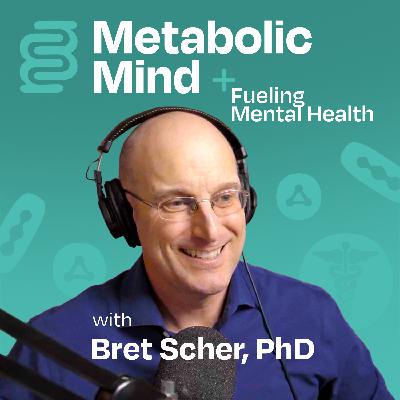6 Clear Signs You Might Have Food Addiction & What You Can Do
Description
Is food addiction a mental illness? Should ultra-processed foods rich in sugar and refined carbohydrates be classified alongside alcohol, nicotine, and other addictive substances linked to substance use disorders?
Food addiction (especially to processed, packaged, carb-heavy foods) is real, widespread, and often misunderstood by both the public and healthcare professionals.
Dr. Bret Scher and Dr. Georgia Ede sit down with Dr. Jen Unwin, a psychologist with over 30 years of NHS experience, to explore the science, diagnostic challenges, and recovery strategies for ultra-processed food addiction.
In this interview, you’ll learn:
- Why food addiction isn’t yet formally recognized as a substance use disorder
- How food addiction differs from emotional or disordered eating
- Biological mechanisms driving addictive patterns, such as dopamine spikes from refined carbohydrates
- The six WHO criteria for substance use disorder and how they apply to food
- The role of ketogenic and low-carb diets in recovery from food addiction
- The influence of artificial sweeteners
- The importance of defining the addictive substances involved
You’ll hear practical strategies for treatment, including abstinence-based approaches, personalized dietary plans, group support, and brain-retraining education. The conversation also explores the rise of GLP-1 medications—where they can help, where they fall short, and how they compare to dietary interventions in addressing root causes.
If you or your patients struggle with cravings, cycles of relapse, or feelings of helplessness around food, this discussion offers hope, clarity, and actionable next steps toward lasting recovery.
Expert Featured:
Dr. Jen Unwin
Dr. Georgia Ede
Resources Mentioned:
The International Food Addiction Conference
Dr. Unwin’s Book
CME’s Mentioned:
Managing Major Mental Illness with Dietary Change: The New Science of Hope
Brain Energy: The Metabolic Theory of Mental Illness
Follow our channel for more information and education from Bret Scher, MD, FACC, including interviews with leading experts in Metabolic Psychiatry.
Learn more about metabolic psychiatry and find helpful resources at https://metabolicmind.org/
About us:
Metabolic Mind is a non-profit initiative of Baszucki Group working to transform the study and treatment of mental disorders by exploring the connection between metabolism and brain health. We leverage the science of metabolic psychiatry and personal stories to offer education, community, and hope to people struggling with mental health challenges and those who care for them.
Our channel is for informational purposes only. We are not providing individual or group medical or healthcare advice nor establishing a provider-patient relationship. Many of the interventions we discuss can have dramatic or potentially dangerous effects if done without proper supervision. Consult your healthcare provider before changing your lifestyle or medications.





